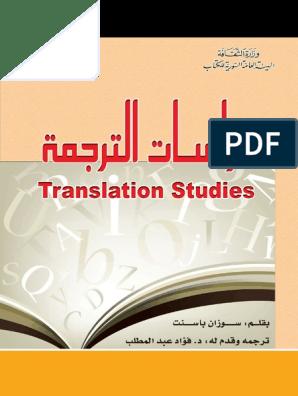The translator, Ammar Kawasmiya, explained in an interview with Al-Shorouk that he did not know that he would one day become a translator, after obtaining a baccalaureate in mathematics and majoring in hydrocarbons at the university. The young man faced many obstacles facing all young fresh graduates before he became one of the most famous translators in the south.
My only example is Professor Mounir al-Baalbaki, because he is unique in his style, whether in writing or translation, and we are nothing but students of his school who seek to follow his example, learn from him and others like him, and acknowledge their merit. We forget that he is of Lebanese origin, and Lebanon is the cradle of writing and authorship: most of the publishing houses and the most famous of them are located in the same country. I never imagined that I would be dazzled by something that fascinated me with translation. The nucleus of this fascination was the first lecture with my virtuous teacher in the second year of a bachelor's degree, as she amazed us with her style and the useful information she possessed.

As for the University of Ouargla, this will give my answer more accuracy. The student studies “translation” in the BA stage only as a measure, and in this stage the training is limited to the applied part with side notes on translation theories, procedures and strategies. As for the master’s degree, the student specializes and studies everything that would enhance his knowledge background in translation. Among what he studies are measures related to translation and its quality, such as the “English-to-Arabic translation” scale, the “Arabic-to-English translation” scale, and the “comparative stylistics” scale. He also studies The “Consecutive Translation” scale, the “Translation Theories” scale, the “Contrastive Linguistics” scale, and the “Arabic language” scale, in addition to complementary scales that support all the aforementioned scales.
As for what is taught, I mean the content, it is rich and useful to the extent that it gives you the necessary tools for translation, analysis, commentary and criticism, of course if the student is diligent, diligent and motivated. Thus, what is taught keeps pace with the requirements of the labor market, whether academic or vocational. The academic requirements are evident in the fact that many translation students at the University of Ouargla succeed in the doctoral competition almost annually, and in universities outside Ouargla as well. As for the professional requirements, our students are also doing well when it comes to “translator” competitions, that is, an interpreter, in a specific service sector. As for the competitions to join the “translator” position, they need more space to address. Translation graduates may also go to the education sector, in which they also have the lion's share. By the way, I remind them from this rostrum that “Al-Shorouk” had announced that registrations for the professors’ competition would start on June 29, 2021, and that these registrations would, for the first time, be online.
No, it was not a decision based on data, but rather it was automatic and unconscious. What I mean is that “literary translation” requires a linguistic faculty, and this faculty is either loved by the Lord - the Almighty - or you acquire it by reading, researching and refining your talent in writing, and based on the fact that I am a writer in the first place, I found myself turning to literary translation without any decision on my part.
As for the difficulties of “literary translation”, they are mainly summarized in the different ways of expression between the two languages, the significance of symbols between the two cultures, the existence of words specific to a certain culture and not others, and the difficulty of preserving verbal decoration with its creative improvements and graphic images. We also encountered many difficulties in translating poetry, including How do we maintain weight? How do we create rhyme while preserving the meaning? How do we convey the same effect that I want in the original text? and others..
In the midst of all this, the translator is confused about choosing the appropriate procedure for translation, and I give you an example: If you ask me to translate the name of your newspaper “Al-Shorouk” into English, I have two options: – To translate the meaning of the word and say: Sunrise, or revise the word (i.e. draw it phonetically transliterated English) I say Echourouk
The translator's confusion is removed only by returning to the client's instructions to decide whether to choose this or that translation.
There will always be a need for translation and translators despite the tremendous development in technology. Nevertheless, this need varies from one specialization to another: general translation, for example, can be done by the machine most of it. And technical translation is also very easy for the machine because it mostly depends on the scientific term, which is easy for the machine. As for what will remain an intractable dilemma for the machine, it is the literary translation, because “Google” will not be able, no matter how developed, to translate for you, for example, some stubborn verses of poetry. Pre-Islamic, Al-Mutanabbi's poetry, or Al-Khansa's poetry.